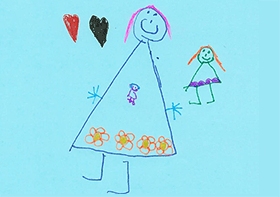HIV/AIDS epidemic in Europe: mother-to-child transmission

Astrid Vorting
WHO expert on the prevention of mother-to-child transmission of HIV
Mother-to-child transmission (MTCT) occurs when an HIV-positive woman passes the virus to her child during pregnancy, labour, delivery or breastfeeding. In the absence of intervention, MTCT rates range from 15% to 45%. Effective interventions in primary health care can reduce these rates enormously.
Progress in reducing MTCT
The reduction in MTCT is one of Europe’s successes in its fight against HIV/AIDS in the last few years. MTCT accounted for just 1% of new cases of HIV infection reported in 2012. The number of infected children in the WHO European Region has decreased by 10% since 2010. This was mostly owing to a decrease in western countries; 75% of infected children were in the east.
European countries had the highest coverage globally of antiretroviral therapy (for over 95% of HIV-infected pregnant women) to reduce the risk of MTCT. Early diagnosis of HIV for infants was widely implemented: more than 95% of infants of HIV-positive women were tested within 2 months of birth. As to HIV testing and counselling, almost 70% of all pregnant women were tested and knew their status in 2011.
WHO support to European countries
WHO/Europe supports Member States in eliminating MTCT by promoting the use of WHO’s “Consolidated guidelines on the use of antiretroviral drugs for treating and preventing HIV infection”, monitoring progress and identifying gaps in countries’ activities. It will hold a regional consultation on the elimination of MTCT of both HIV and congenital syphilis.
Progress report to be launched at 2014 Regional Committee
The 2011 WHO Regional Committee for Europe adopted the European Action Plan for HIV/AIDS and requested the WHO Regional Director for Europe to report on its implementation to the 2014 session. The report will describe the progress made and challenges remaining.



